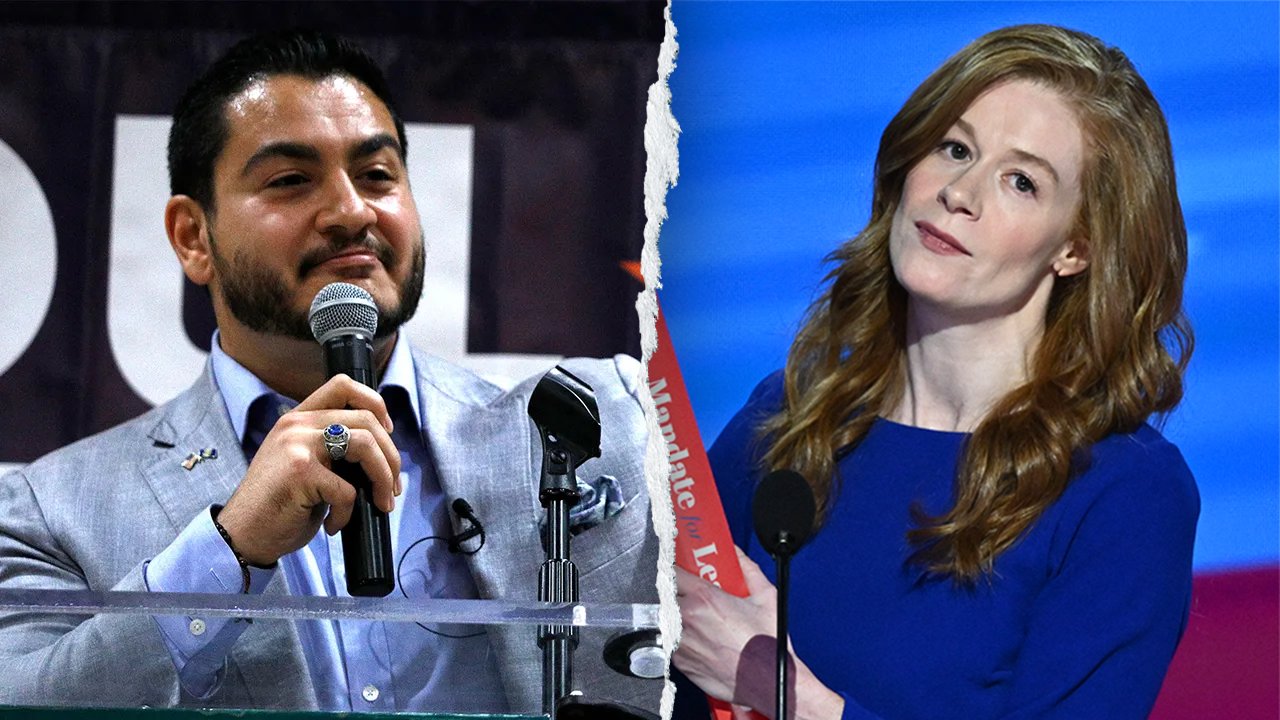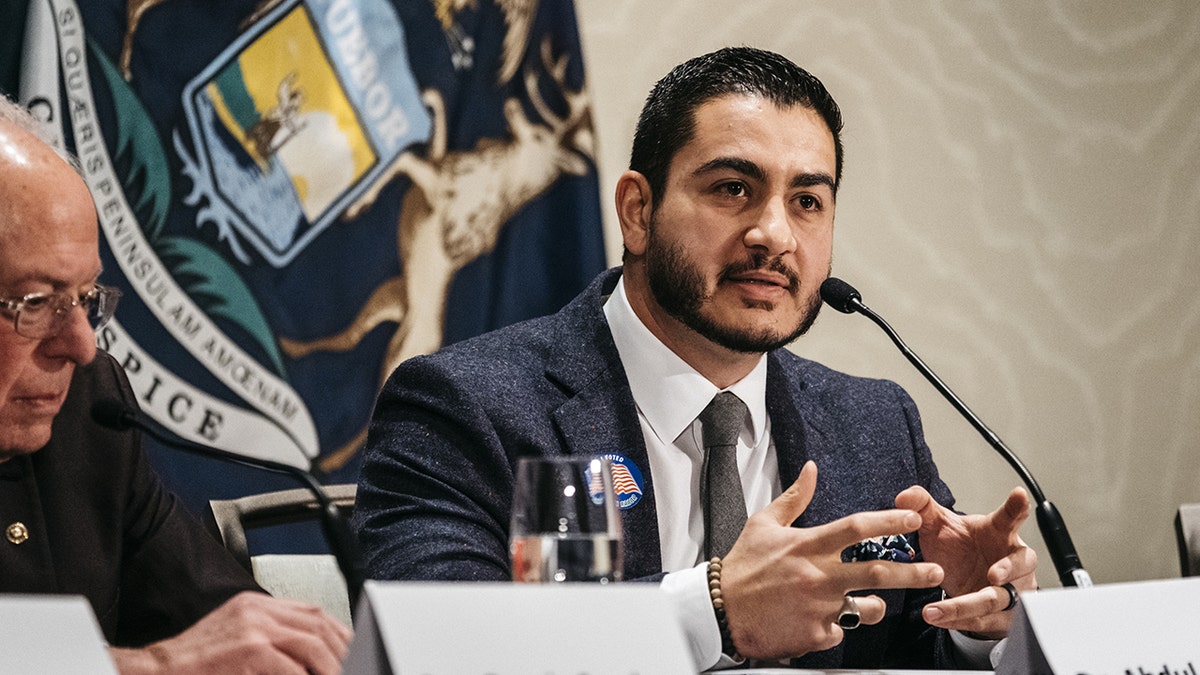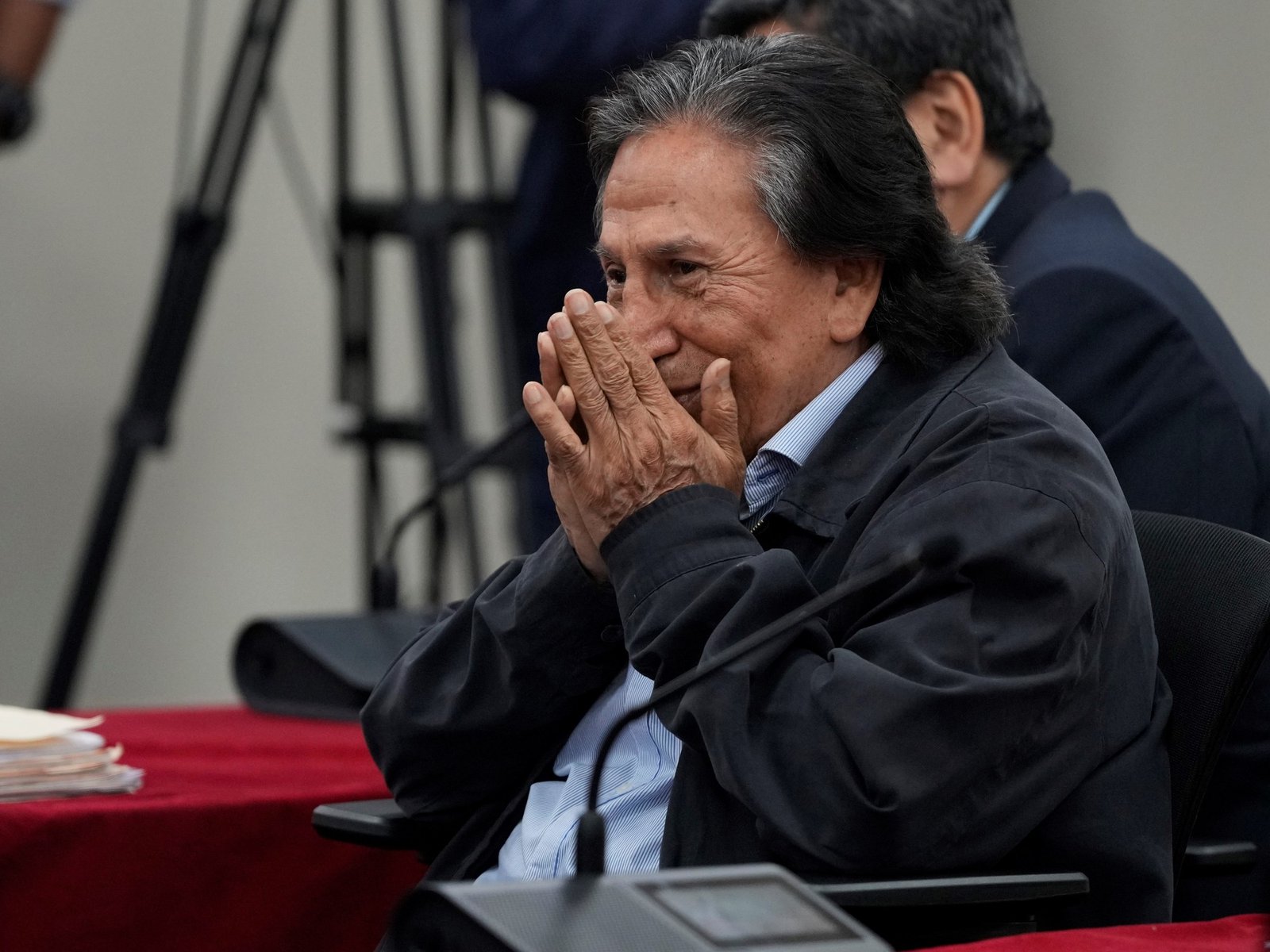INTERNACIONAL
Por qué tener muchas opciones puede hacer menos feliz a la gente

Frente a una variedad interminable de opciones, lo que parecía ser un camino a una mayor satisfacción acaba tornándose en un desafío, según demuestra un reciente estudio del Instituto Técnico de California (Caltech). Publicado en la revista Nature Human Behavior, la investigación cuestiona la idea común de que disponer de más alternativas conlleva una mayor libertad y bienestar.
Los hallazgos de Caltech indican que llega un momento en el cual la abundancia de opciones se convierte en un obstáculo, influyendo negativamente tanto en decisiones cotidianas como en aquellas de mayor trascendencia. Este fenómeno, conocido por los expertos como la “paradoja de la elección”, sugiere que la vasta oferta con la que convivimos puede resultar en indecisión e insatisfacción, paralizando a las personas y dificultando el proceso de elección.
Durante años, la noción de que disponer de un sinfín de opciones es la clave para alcanzar la libertad y la satisfacción ha dominado el imaginario social. Sin embargo, en la práctica diaria, este exceso puede convertirse en un verdadero problema.
La sobrecarga de posibilidades puede llevar a la indecisión, paralizando tanto en decisiones fundamentales —como decidir el colegio de un hijo o enfrentar un dilema médico— como en elecciones más mundanas, como elegir un restaurante, planear unas vacaciones o adquirir un automóvil.
La sociedad de consumo actual, caracterizada por su incesante oferta de productos y servicios, ha hecho de esta multiplicidad una de sus marcas distintivas. Mucha oferta puede ser contraproducente, ya que provoca ansiedad y complica el proceso de quedar satisfecho con la decisión final. No obstante, las expectativas derivadas de este modelo no siempre se cumplen.

El estudio publicado en Nature Human Behavior y realizado por investigadores de Caltech se propuso analizar de manera científica el impacto de la sobrecarga de opciones en la toma de decisiones.
Para ello, los autores recurrieron a técnicas de neuroimagen, utilizando resonancias magnéticas, mientras los participantes evaluaban diferentes conjuntos de alternativas compuestos por 6, 12 o 24 elementos.
Durante el experimento, los participantes debían elegir entre los distintos conjuntos, mientras los investigadores observaban la actividad cerebral asociada al proceso de decisión.
Los resultados mostraron que los conjuntos de 12 opciones generaban una mayor actividad cerebral, lo que los expertos interpretaron como un número adecuado de alternativas. En contraste, los grupos con solo 6 elementos se percibían como insuficientes, mientras que los de 24 resultaban excesivos y reducían la actividad cerebral relacionada con la toma de decisiones.
Según los investigadores, la introducción de una opción claramente dominante facilitaba la elección y aumentaba la actividad cerebral. Cuando el número de alternativas se volvía demasiado grande, la actividad en el cerebro se paralizaba, lo que sugiere una dificultad real para procesar y comparar las variables.
Dicho estudio identificó dos regiones cerebrales especialmente implicadas en este fenómeno: el estriatum, encargado de determinar el valor de las cosas, y la corteza cingulada anterior, relacionada con la evaluación y el control de las decisiones. La observación de estas áreas permitió a los científicos concluir que existe un umbral a partir del cual la variedad de opciones deja de ser útil y comienza a ser perjudicial.
Uno de los hallazgos más destacados del estudio de Caltech es la identificación de un rango óptimo de alternativas para facilitar la toma de decisiones. Según los expertos, el número ideal de opciones se sitúa entre 8 y 15. Este intervalo parece ofrecer un equilibrio adecuado: suficiente variedad para elegir sin que la cantidad de alternativas resulte abrumadora.
Los investigadores advierten que este rango no es absoluto y puede variar en función de varios factores. Entre ellos, destacan el nivel de recompensa percibido tras la elección y las características personales de cada individuo, como la facilidad o dificultad para evaluar las opciones disponibles.
Así, una persona acostumbrada a analizar múltiples variables podría tolerar un mayor número de alternativas, mientras que alguien más indeciso o exigente podría sentirse sobrepasado con menos opciones.
Estos resultados tienen implicaciones prácticas en numerosos ámbitos, desde el diseño de menús en restaurantes hasta la oferta de productos en comercios o la presentación de alternativas en servicios digitales.
En ese sentido, encontrar el equilibrio adecuado entre variedad y simplicidad puede ser clave para mejorar la experiencia del usuario y evitar la insatisfacción derivada de la sobrecarga de opciones.

El psicólogo Barry Schwartz, reconocido por su trabajo sobre la paradoja de la elección, aporta una visión complementaria a los hallazgos del estudio de Caltech. Sostiene que la libertad de elección es un principio central en la sociedad contemporánea, pero advierte que un exceso de alternativas no necesariamente incrementa la libertad ni la felicidad.
Para Schwartz, elegir entre demasiadas opciones puede reducir la capacidad de acción de las personas y aumentar la insatisfacción. “No nos hace más felices, sino más insatisfechos”, afirma el experto, quien acuñó el término “paradoja de la elección” para describir este fenómeno.
En su análisis, una gran diversidad de opciones puede parecer, en la superficie, una ventaja para el consumidor, pero en la práctica puede generar una sensación de agobio y dificultar la satisfacción con la decisión tomada.
La sobrecarga de alternativas afecta especialmente a las personas exigentes y poco conformistas, quienes tienden a analizar en exceso las posibilidades y a cuestionar si han tomado la mejor decisión posible. Esta tendencia puede llevar a la insatisfacción crónica, incluso cuando la elección objetiva es positiva.
El estudio de Caltech y las reflexiones de Barry Schwartz coinciden en señalar los riesgos asociados a la sobreabundancia de alternativas. La sobrecarga de opciones puede dificultar la toma de decisiones, generar ansiedad y conducir a la insatisfacción, especialmente en individuos poco conformistas o con altas expectativas.
En palabras de Schwartz, “muchas opciones pueden ser demasiadas”, una advertencia que invita a reconsiderar la relación entre variedad, libertad y bienestar en la vida cotidiana.
La investigación sugiere que, lejos de ser siempre beneficiosa, la multiplicidad de alternativas puede convertirse en un obstáculo para la satisfacción personal y la salud mental.
INTERNACIONAL
Sanders-endorsed Senate candidate knocked for alleged flip-flop to ‘have it both ways’ on key issue

NEWYou can now listen to Fox News articles!
A Democratic Senate candidate endorsed by Sen. Bernie Sanders, I-Vt., is being slammed for allegedly flip-flopping on one of his primary campaign issues.
Abdul El-Sayed, the progressive candidate who previously ran an unsuccessful bid for Michigan governor, has made Medicare for All a hallmark of his Senate campaign.
However, as the Michigan Senate primary race heats up, El-Sayed’s Democratic opponent, state Sen. Mallory McMorrow, is accusing him of backing down from a full Medicare for all stance and of «rewriting definitions to have it both ways.»
MEET THE NEW ‘SQUAD’: THE NEXT GENERATION OF TRUMP-ERA PROGRESSIVE CONGRESSIONAL CANDIDATES
Left: Michigan Democratic Senate candidate Abdul El-Sayed. Right: Michigan Democratic candidate and state Sen. Mallory McMorrow. (Photos by Bill Pugliano/Getty Images; MANDEL NGAN/AFP via Getty Images)
Roxie Richner, an El-Sayed campaign spokesperson, responded by telling Fox News Digital that «Dr. El-Sayed is and has always been for Medicare for All—guaranteed public health insurance for every American. Cradle to grave. No premiums, deductibles, or co-pays.»
«Dr. El-Sayed would be the first Democratic doctor elected to the U.S. Senate since 1969, and he looks forward to passing Medicare for All into law,» added Richner.
El-Sayed’s campaign website page on «A Healthier America» cites a book he co-authored in 2021 in which he wrote that limiting private alternatives to Medicare for All would be important to ensuring providers accepted the insurance. The book advocates for Medicare for All as a type of «monopsony» in healthcare, in which there is only a single buyer of medical services, the government.
«By insuring all Americans, M4A becomes a monopsony in healthcare. This is different from a monopoly, where there’s only one seller of a good; in a monopsony there’s only one buyer of a good. That gives the single buyer considerable negotiating leverage, which Medicare could use to rein in the cost of drugs, hospital stays, and physician services,» the book reads.
In a November post on X, El-Sayed explained that this monopsony «would instantaneously create a disciplining feature against rising prices,» because it «takes out the profit motive on the payer end of the transaction.»
The book further states that «because alternatives to M4A [Medicare for All] would be limited, participation of providers would be virtually guaranteed.»
«Instead of spending time and money dealing with the arcane requirements of hundreds of different health plans […] providers could use one streamlined system that would free up resources to focus on clinical care,» the books reads.
The latest version of the federal Medicare for All Act, introduced in the Senate by Sanders, includes language that would effectively ban most comprehensive private insurance plans and relegate private insurers to providing limited supplemental care.
The legislation would make it unlawful for «a private health insurer to sell health insurance coverage that duplicates the benefits provided under this Act; or (2) an employer to provide benefits for an employee, former employee, or the dependents of an employee or former employee that duplicate the benefits provided under this Act.»
MICHIGAN FAMILY SAYS COUNTY SEIZED HOME OVER TAX BILL THEY DIDN’T OWE — CASE NOW HEADS TO THE SUPREME COURT

Dr. Abdul El-Sayed speaks during a coronavirus public health roundtable with Senator Bernie Sanders, I-Vt. (Erin Kirkland/Bloomberg via Getty Images)
El-Sayed testified before the Senate in support of the Medicare for All Act in 2022, calling it «the clearest pathway to universal, durable health care insurance, bar none» and saying that «cradle to grave coverage would do away with the premiums, co pays, deductibles that leave even privately insured Americans rationing their health care today.»
The year before, in an interview with NerdWallet, El-Sayed said that under a Medicare for All plan, the government would be «buying you out» of your private insurance plan but that «a few insurance companies that offered a sort of concierge-level service for folks who wanted to pay for that.»
In a 2024 episode of the «America Dissected» podcast, El-Sayed emphasized that «we don’t really need private health insurance in this country.»
He said that «private health insurance is a system by which you have a middleman in our healthcare system making a tremendous amount of money that is leading to a number of the biggest problems in American healthcare whether that’s the fact that our costs continue to spiral upward, whether that’s the fact that nearly ten million people in our country don’t get health insurance at all, or it’s the fact that we are consistently in this country, unable to guarantee, even people who are insurance access to the health care they need.»
In October, El-Sayed knocked McMorrow for advocating for allowing a public option under universal healthcare, writing on X, «a public option can’t deliver healthcare to every Michigander. Medicare for All can.» Politico, in December, reported El-Sayed slamming McMorrow’s call for universal health care with a public option as «incoherent.»
«Now a public option is exactly that; it’s just an option. There is no reason why it would actually address any of the foundational problems in our system. It wouldn’t bring down the rising costs. It wouldn’t guarantee people health care, and we don’t really know how much it would cost,» he said.
Yet, while speaking on the Brian Tyler Cohen Podcast in January, El-Sayed suggested that under Medicare for All, «if you like your insurance from your employer or from your union, that can still be there for you.»
PROGRESSIVES NOTCH ANOTHER WIN OVER DEMOCRATIC MODERATES AS SANDERS-AOC ALLY NEARS CONGRESS

Sen. Bernie Sanders, I-Vt., introduced the Medicare for All Act. (Getty Images)
Days later, speaking on radio channel WDET, he again said, «Medicare for All is government health insurance guaranteed for everyone, regardless of what circumstances you’re in. If you like your insurance through your employer or through your union, I hope that’ll be there for you. But if you lose your job, if your factory shuts down, you shouldn’t be destitute without the health care that you need and deserve.» He also said, «If you have a public option, what happens is, the private health insurance system will try to dump all of the most expensive patients onto that public option, vastly increasing the cost of that public option and making it unsustainable.»
CLICK HERE TO DOWNLOAD THE FOX NEWS APP
El-Sayed’s campaign website states that he «believes in expanding Medicare to cover every single American from cradle to grave while sustaining the option for workers to keep supplemental private insurance their unions or employers may provide.» Amid criticism from McMorrow, El-Sayed doubled down on his Medicare for All messaging in a January fundraising message, in which he wrote that «private insurance could supplement or duplicate Medicare.»
Meanwhile, McMorrow has accused him of not being honest on Medicare for All.
«On an issue as important as healthcare, you have to be honest about what you’re fighting for,» McMorrow wrote in a public reply to El-Sayed, adding, «The Medicare for All legislation that you’ve championed completely eliminates private health insurance as it exists today.»
Sanders’ office did not immediately respond to Fox News Digital’s request for comment.
midterm elections,senate elections,democratic party,michigan
INTERNACIONAL
Peligro en Los Alpes italianos: dos muertos y múltiples avalanchas en menos de una semana

Una serie de avalanchas sacudió el norte de Italia este fin de semana, con un saldo de dos esquiadores muertos y al menos dos heridos en incidentes separados que se produjeron en condiciones de nieve excepcionalmente inestables a lo largo del arco alpino.
El episodio más grave ocurrió el domingo en el Couloir Vesses, una conocida ruta de esquí fuera de pista en la parte alta del Val Veny, en Courmayeur, localidad ubicada en el lado italiano del Mont Blanc, cerca de la frontera entre Francia y Suiza. La avalancha sepultó a varios integrantes de un grupo de esquiadores. Los rescatistas localizaron en un primer momento el cuerpo de una víctima y trasladaron de urgencia a dos heridos en estado crítico. Uno de ellos falleció poco después de llegar al hospital, mientras que el único superviviente fue derivado en condiciones muy graves al hospital Molinette de Turín.
Las labores de búsqueda y rescate, concluidas el mismo domingo, movilizaron a 15 rescatistas, tres unidades caninas, dos médicos, dos helicópteros y dos ambulancias. Medios locales estiman que el grupo original estaba integrado por entre tres y seis personas de nacionalidad francesa, aunque las autoridades no precisaron el número total de afectados.
El mismo domingo, en Trentino, también en el norte del país, una persona quedó parcialmente sepultada por otra avalancha en la zona de Tesino, pero fue rescatada por sus propios compañeros sin necesidad de asistencia médica.
Dos días después, el martes 17 de febrero, un testigo filmó en la misma zona de Val Veny, cerca del telesilla Zerotta en Courmayeur, cómo una enorme nube de nieve generada por una avalancha se extendió sobre una fila de esquiadores y snowboarders que esperaban para subir al remonte. Las imágenes muestran cómo la nube cubrió completamente el área, redujo la visibilidad a cero e impactó a quienes aguardaban en la fila. En ese caso no se registraron heridos.

Los expertos advierten que incluso las nubes de polvo generadas por avalanchas pueden derribar personas, crear condiciones de respiración peligrosas y causar pánico, aun cuando no arrastren escombros de nieve. En el momento del incidente del martes, el nivel de peligro de avalanchas en la zona estaba calificado en 4 sobre 5, considerado “alto” por los servicios de alerta alpinos.
Los fallecidos del domingo en Courmayeur se suman a un contexto de peligro extendido en toda la región. Según informó el Servicio de Rescate Alpino de Italia, un récord de 13 esquiadores de fondo, alpinistas y excursionistas murieron en las montañas italianas en los siete días previos al 8 de febrero, diez de ellos en avalanchas provocadas por un manto de nieve particularmente inestable.
Las nevadas recientes, combinadas con fuertes rachas de viento en cotas altas y la acumulación de nieve sobre capas débiles del manto nivoso, han creado condiciones especialmente peligrosas a lo largo de todo el arco alpino entre Italia, Francia, Suiza y Austria. Los servicios de alerta de los cuatro países han instado de forma reiterada a los esquiadores a consultar los boletines de avalanchas diariamente, respetar los cierres de pistas y evitar las zonas de terreno expuesto durante este período de alto riesgo. Los expertos advierten que, con los ciclos de tormentas que continúan afectando partes de los Alpes, el peligro elevado podría persistir en muchas regiones en el corto plazo.
Courmayeur, localidad de unos 2.900 habitantes, se encuentra a aproximadamente 200 kilómetros al noroeste de Milán, una de las sedes de los Juegos Olímpicos de Invierno de Milán-Cortina.
Europe
INTERNACIONAL
De Fujimori a José Jerí: los presidentes de Perú investigados y expulsados del poder

1. Alberto Fujimori (1990-2000)
2. Alejandro Toledo (2001-2006)
3. Alan García (1985-1990 y 2006-2011)
4. Ollanta Humala (2011-2016)
5. Pedro Pablo Kuczynski (2016-2018)
6. Martín Vizcarra (2018-2020)
7. Pedro Castillo (2021-2022)
8. Dina Boluarte
9. José Jerí

 POLITICA2 días ago
POLITICA2 días agoCristian Ritondo: “Vamos a apoyar la ley de modernización laboral, pero no el régimen de licencias por enfermedad”

 POLITICA15 horas ago
POLITICA15 horas agoReforma laboral bomba: menos indemnización, más horas y despidos más fáciles — el cambio que puede sacudir el empleo en Argentina

 POLITICA3 días ago
POLITICA3 días agoUno de los jefes de la CGT adelantó que convocarán a un paro general por la reforma laboral: “Trabajaremos para que sea una gran huelga”















